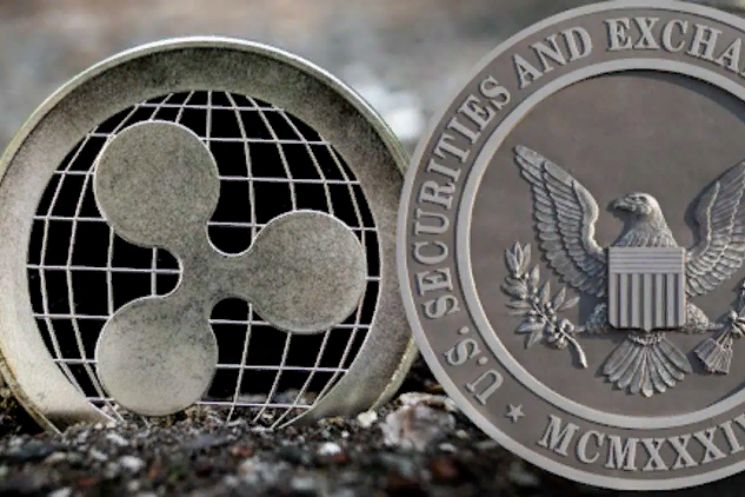The SEC seems afraid of Ripple's "Gigantic Win" and takes potshot at companies supporting Ripple in $XRP suit to defend Ripple in the protracted $1.3 billion $XRP securities litigation, two companies, I-Remit and TapJets, attempted to file amici papers with the court. The U.S. Securities and Exchange Commission (SEC) objected to their attempts. The movers have come under fire from the regulator for attempting to provide material outside discovery laws and the court's earlier decision.
Initial SEC charges on Ripple
On December 22, 2020, the Securities and Exchange Commission announced that it had filed a complaint against Ripple Labs Inc. and two of its senior managers, who are also significant stockholders, alleging that they raised more than $1.25 billion through an ongoing, unregistered offering of securities backed by digital assets.
Per the SEC's complaint, Ripple, its co-founder and current CEO, Brad Garlinghouse, and its previous CEO and executive chairman of the board, Christian Larsen, raised money to fund the company's operations. According to the lawsuit, Ripple collected money starting in 2013 by selling digital assets called $XRP in unregistered security offering to investors in the US and other countries. Ripple is said to have also given away billions of $XRP in return for non-cash benefits, including labor and market-making services.
In addition to arranging and pushing the $XRP sales used to support the company's operations, the lawsuit claims that Larsen and Garlinghouse also carried out personal, unregistered transactions of $XRP totaling over $600 million. According to the complaint, the defendants violated the federal securities laws' registration requirements by failing to register their $XRP offers and sales or to abide by any exemptions from there.
Stephanie Avakian claims
According to Stephanie Avakian, Director of the SEC's Enforcement Division:
"Issuers looking to find the economic advantages of a public offering, such as access to retail investors, broad distribution, and a tertiary trading market, must abide with the federal securities regulations that necessitate certification of offerings, unless an exemption from certification applies."
"We allege that Ripple, Larsen, and Garlinghouse were unable to register their on-going offer and sale of billions of $XRP to retail investors, denying potential buyers of $XRP and Ripple's business adequate disclosures as well as other significant long-standing security measures that are crucial to our robust public market system."
Marc P. Berger claims
According to Marc P. Berger, Deputy Director of the SEC's Regulatory Board:
"The registration requirements are meant to guarantee that potential investors, including, critically, retail investors, obtain critical information about an issuer's business activities and financial health."
Here, we assert that Ripple and its officials disregarded these fundamental investor protection measures for years, depriving investors of the data to which they were legally entitled.
The SEC objects to companies supporting Ripple defense
The cross-border payments startup I-Remit, which has its headquarters in the Philippines, asked to join the SEC vs. Ripple lawsuit last week. The dispute has been going on for over two years. I-Remit said that because it depends on Ripple's on-demand liquidity (ODL) service, which uses the $XRP cryptocurrency to speed up cross-border settlements, it has a stake in the lawsuit's result.
I-Remit is granted the right to assist the court by offering knowledge, experience, or insight thanks to its "friend of the court" status. The business claims to have extensive expertise in ODL and wants to help the court evaluate the SEC's accusations.
TapJets additionally submitted a request for amicus curiae certification. The private aviation firm wants to emphasize $XRP's usefulness. It said that $XRP usage swiftly enables clients to book flights outside banks' typical business hours and is essential to its operations.
The SEC has responded by claiming that these two companies cannot adequately explain how Ripple's being required to register its $XRP sales and distribution will prevent them from adopting cryptocurrency. Additionally, the plaintiff cannot think of any good reasons why Ripple couldn't have presented the information that I-Remit and TapJets provided.
Has Ripple already defeated the SEC in this conflict?
In addition to the outpouring of support for Ripple, the San Francisco-based internet company has also won the lawsuit in several procedural battles. Most recently, a judge for the U.S. District Court rejected the SEC's attempts to exclude Ripple from seeing emails relating to the speech by former SEC Corporation Finance Division Head William Hinman when he claimed that competitor cryptocurrency Ethereum was not a security.
The SEC has chosen two winners in the cryptocurrency market, Bitcoin and Ether, while ignoring the others, according to Ripple, who believes that these papers will support its argument. A standard that other cryptocurrency projects may use is at issue in the Ripple lawsuit. If the corporation prevails, the SEC's "regulation by enforcement" scheme will suffer a significant defeat. More crucially, $XRP, which has remained essentially stagnant since the case was filed, may soar to new all-time highs if the court finds it in Ripple's favor.
 cryptonews.net
cryptonews.net
